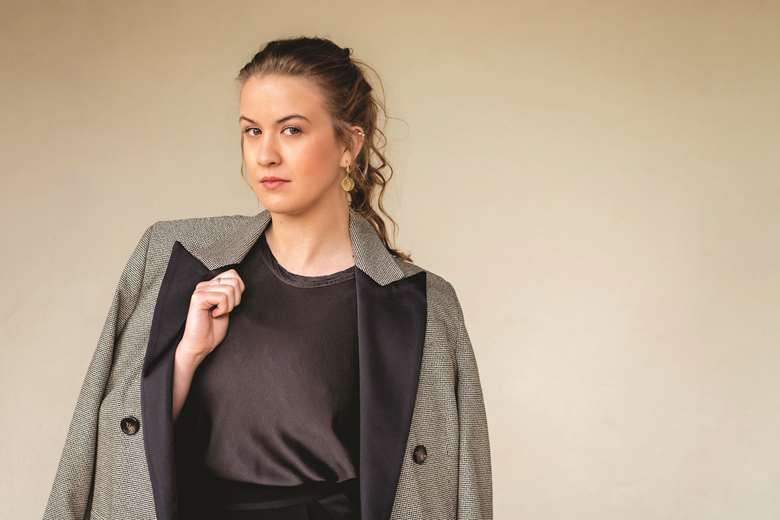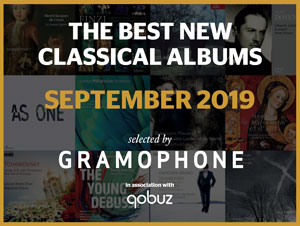Raising the bar | Interview with Charlotte Corderoy
Clare Stevens
Thursday, April 24, 2025
At 27, conductor Charlotte Corderoy is making waves in the opera world, with debuts at English National Opera, Glyndebourne, and beyond. We meet the rising star whose journey has taken her from cathedral choirs to the international stage

 Charlotte Corderoy (credit: Leanne Punshon)
Charlotte Corderoy (credit: Leanne Punshon)
She made her English National Opera debut in October conducting two performances of The Turn of the Screw, spent last Christmas and New Year in Vienna, conducting My Fair Lady at the Volksoper Wien, and this summer she will be assistant conductor to Riccardo Minasi for Glyndebourne’s new production of Le nozze di Figaro. Before that, she travels to Adelaide to conduct Jonathan Dove and April de Angelis’s Flight with the State Opera of South Australia.
And that’s just the operatic highlights of Charlotte Corderoy’s schedule. She’s also working with Barbara Hannigan at the London Symphony Orchestra, and is assistant conductor to the City of Birmingham Symphony Orchestra and musical director of the new Junior Musical Theatre Department at London’s Royal Academy of Music (RAM). She was shortlisted for the 2025 Royal Philharmonic Society Young Artist Award.
It’s quite a CV for a musician who is still only 27. But I must admit I’m a bit surprised to be interviewing Corderoy for ON rather than for our sister magazine Choir & Organ. Ten years ago she was one of a particularly strong cohort of singers in the 2015 Hereford Three Choirs Festival Youth Choir; sitting in on rehearsals and concerts as a member of the festival’s staff team, I couldn’t help noticing her star quality. Everyone was committed and engaged musically and socially, but Corderoy seemed to be particularly attentive and responsive. She was clearly heading for a career in music, but I assumed it would be as a singer.
Corderoy admits that this was her own assumption too for a long time. ‘In my gap year after school I was naively applying for singing courses and programmes that I now know were designed for postgrads. But as an organ scholar at Hertford College Oxford, where the two scholars shared conducting and playing, I discovered that I loved the conducting bit.’ She became the first person ever to hold the principal conductorships of both the Oxford University Philharmonia and the Schola Cantorum and was also principal conductor of Oxford Contemporary Opera Society, which gave the UK premiere of Gavin Bryars’s Marilyn Forever under her baton.
Her family was not particularly musical, but she describes a rich childhood with ‘incredibly supportive parents, who made enormous sacrifices’ to enable their two daughters to make the most of every opportunity that came their way.
For Charlotte this included ballet, piano and flute lessons, performing in shows and with choirs at her two state grammar schools in the Cotswolds, and being taken to musical theatre productions. ‘That was where my heart really was, but I think my first love of music and my understanding of things like rhythm came from being a very active ballerina.’
Hearing some of her contemporaries in Gloucestershire Youth Orchestra talking about their experiences in Gloucester Cathedral’s Youth Choir inspired her to join them. Being part of the cathedral’s musical community, watching director of music Adrian Partington and his assistants Jonathan Hope and Nia Llewelyn Jones working with the choirs and hearing them talking about the responsibility of music-making made a real impact. ‘We took part in the Three Choirs Festival, singing huge works such as Elijah, The Dream of Gerontius, Mahler 8 ... Being on stage with the Philharmonia Orchestra as a member of the youth choir and later with the main Three Choirs Festival Chorus, seeing how Adrian and the other conductors operated with professional players, was a big deal, a real game-changer.’
Another gamechanger was being one of the seven-strong inaugural cohort on the RPS Women Conductors’ Course led by Alice Farnham and run in association with the Royal Northern Sinfonia in Gateshead. ‘The amazing thing about that was the feedback; the players picked up on the fact that I didn’t look as though I felt I belonged on the podium, and told me that I need to believe I deserved to be there.’
On the orchestral conducting MA course at the RAM, Corderoy had the opportunity to conduct opera scenes and to assist on a production of Figaro. ‘I began to realise that conducting opera was something I enjoyed, probably because I had an affinity for singers, and the way they interact with orchestras. It was nice to feel that you had a part in facilitating that relationship.’ She also worked on a Stravinsky recording project that led to co-conducting with Barbara Hannigan on a tour of The Rake’s Progress with the Swedish Chamber Orchestra.
The Academy encouraged her to apply for British Youth Opera’s summer course, which led to conducting an abridged version of Vaughan Williams’s Sir John in Love on Opera Holland Park [OHP]’s stage. ‘I can’t speak highly enough of the British Youth Opera team, they were really supportive. They set up a meeting for me with James Clutton, OHP’s director of opera; from that came an invitation to be part of the 2023 Young Artists’ Programme, and that was a real turning point, my first proper job. It was Humperdinck’s Hansel and Gretel, right up my street. The young artists are given two performances in the run, and we were really encouraged to make it our own as much as possible within the framework of the existing production.’
Attending one of those performances, I found it hard to believe this was Corderoy’s first experience of conducting a full-length opera. Seemingly in complete command of the complex score, she looked as though she had been doing this all her life.
A few weeks later she looked equally comfortable conducting BYO’s semi-staged performance of Vaughan Williams’s The Pilgrim’s Progress at the Gloucester Three Choirs Festival. The Arts Desk’s Stephen Walsh shared my favourable impression: ‘conducting one of our top orchestras in a difficult, complicated work, in a hostile acoustic, in a packed cathedral … her control was immaculate, her grasp of the music’s elaborate ebb and flow apparently flawless. The Royal Philharmonic Orchestra played for her like angels.’
Baritone Ross Cumming, who sang the Pilgrim on that occasion, is equally enthusiastic about the performers’ experience. ‘Charlotte’s efficiency, creativity, kindness and humour in the rehearsal room facilitated a wonderful work environment for all us young singers to thrive while always striving for further detail and expression, he recalls. ‘Her ability to allow young singers to express themselves creatively and guide them through complex repertoire in a nurturing environment while also being a young artist herself is nothing short of incredible.’
I began to realise that conducting opera was something I enjoyed, probably because I had an affinity for singers, and the way they interact with orchestras

Asked if she herself feels supported at this exciting stage in her career, Corderoy pays tribute to her managers at Askonas Holt and to everything she learned about the job of being a conductor from Sian Edwards at the RAM, but also singles out Barbara Hannigan. ‘I feel I can ask her anything, and I do, not too often but she is unfailingly supportive, she’ll always pick up the phone or answer a text, whether it’s a musical issue or something more practical.’
Many season announcements were still to be made when we met, but Corderoy looked gleeful about future plans. ‘I can tell you that opera will be at the heart of my very busy schedule!’
This featured originally appeared in the Summer 2025 issue of Opera Now – Subscribe today!









